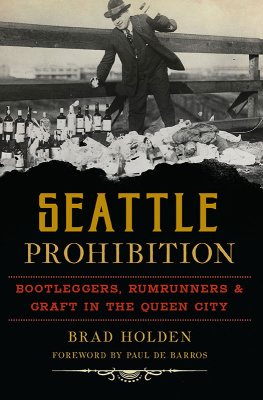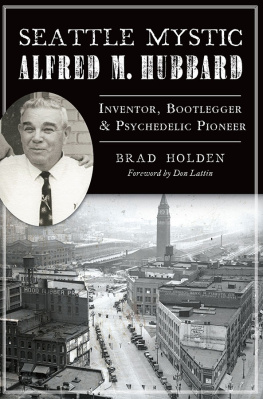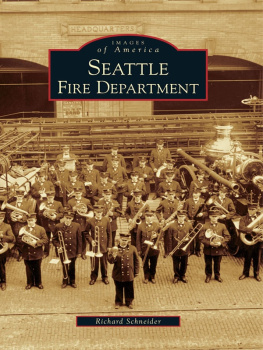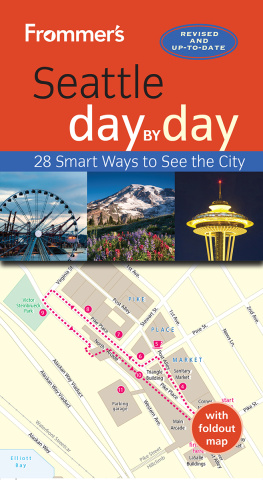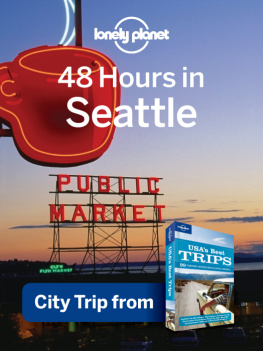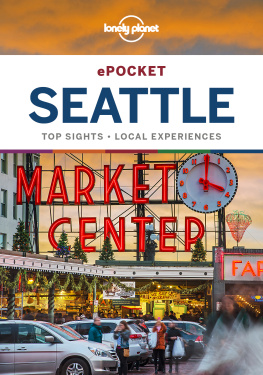

Published by The History Press
Charleston, SC
www.historypress.com
Copyright 2019 by Brad Holden
All rights reserved
First published 2019
ISBN 978.1.43966.667.8
Library of Congress Control Number: 2018966320
print edition ISBN 978.1.46714.020.1
Notice: The information in this book is true and complete to the best of our knowledge. It is offered without guarantee on the part of the author or The History Press. The author and The History Press disclaim all liability in connection with the use of this book.
All rights reserved. No part of this book may be reproduced or transmitted in any form whatsoever without prior written permission from the publisher except in the case of brief quotations embodied in critical articles and reviews.
CONTENTS
FOREWORD
Americans have long acknowledged that the great social experiment of Prohibition was a spectacular failure, not only because it was so thoroughly ignored by most of the populace, but also because of its unintended consequences, among them, the boost it gave to organized crime. Though the public has been slower to discern the parallels between Prohibition and the war on drugs, it is encouraging to see that the same breed of moralists who brought us the Volstead Act are now being pushed back, state by state, when it comes to marijuana. Once a bastion of bluenoses, Washington can now claim that it was one of the first states (along with Colorado) to legalize recreational marijuana, and, as Brad Holdens captivating new book points out, also led the way in the microbrew movement, thanks to the liberalization of its liquor laws. If its true that a Puritan is someone who has the sneaking suspicion that someone, somewhere, is having a good time, then Washington and its citizens, though we dont much like to brag, can be modestly relieved if not openly proud that we have joined the party.
As a jazz historian, I have inevitably been drawn to study the underworld social milieu that supported jazz in its first half century. There is an obvious overlap between the research I did for Jackson Street After Hours: The Roots of Jazz in Seattle and the present work. But I was unprepared for the cinematic detail Brad Holden brings to this story. Everyone knows about Roy Olmstead, the crooked cop turned bootlegger who supposedly signaled his deliveries over the radio. And sensationalized newspaper stories about federal agents swinging their way into 1920s speakeasies with axes are also familiar to local historians. But who knew about bootleg thief Pirate Jack Marquett, dubious federal enforcer William Whitney, moonshiner Frank Gatt, rumrunner Johnny Schnarr, Canadian detective Forbes Cruickshank, bootlegger Legitimate Pete Marinoff and double agent Al Hubbard? What a twisted, tawdry tale of crossings, double-crossings and double-double-crossings Holden reveals here, complete with midnight shoot-outs on the choppy seas between Canada and the San Juans and stakeouts along the shore! This is crazy, fun stuff.
On a more serious cultural note, this tale of how our forefathers and foremothers repressed the popular (and apparently irrepressible) impulse to drinkoften, it must be said, with the best of intentions, as women sought to protect themselves from drunken husbandsis also a timely reminder that the same pious zealots who outlawed drinking were alsosometimes wittingly, sometimes notwaging a war against Seattle music. For it was not only alcohol that was driven underground in Seattle by Prohibition, but dancing, too, and the joyous, sensual celebration of song, a tradition that extended well beyond 1920s mayor Bertha Landess war on dance halls into the recent past, with the odious (and eventually repealed) teen dance hall ordinance. But music, like the human spirit itself, has a way of enduring. Pass whatever laws you like, ecstasy will somehow find its way into basement caverns and secret hideaways, where you will find people drinking, singing, dancing and celebrating. In the last few decades, thankfully, such celebrations have come out of hiding, welcomed and honored as a crucial part of Seattles cultural fabric. Brad Holdens fascinating tale recalls a time when they were still struggling underground.
PAUL DE BARROS
December 18, 2018
ACKNOWLEDGEMENTS
This was an incredibly fun book to write, but it wouldnt be possible without the help of several people. Starting things off, a giant thanks to Kurt Stream (author of Brewing in Seattle) for planting the book-writing idea in my head during a conversation we had. Another big thanks to Arcadia Publishing acquisitions editor Laurie Krill, who has been an absolute godsend with patiently helping me navigate this whole process. Next, I would like to offer my deep and sincere gratitude to Jewelli Delay (great-granddaughter of Frank Gatt), who sat down with me and shared her family stories as well as all the photographs of the infamous moonshiner that are included in this book. Her book, The Gentleman Bootlegger: The Story of Frank Gatt, is highly recommended for anyone interested in this chapter of Seattle history. Likewise, my deep gratitude to Patricia Olmstead for the terrific phone conversations we shared about her father, Roy Olmstead, as well as Katie, his great-granddaughter, for all her assistance. Being able to talk to the descendants of these local historical figures was nothing short of amazing. During the research of this book, I also became involved in the exciting discovery of a famous speakeasy that was found during a recent building renovation in the International District of Seattle. The story of this speakeasy is covered in the book, but a big thanks to the buildings owner, Tanya Woo, for allowing me such access. In the same light, I would like to offer my thanks to very knowledgeable Capt. Gene Davis, who runs the fantastically curated Seattle Coast Guard Museum, where I found an incredible array of photographs and resources pertaining to Pacific
Northwest rum-running. A big thanks also goes to Paul de Barros, who graciously penned the foreword to this book. Paul is a music columnist and local historian whose excellent book, Jackson Street After Hours: The Roots of Jazz in Seattle, is a must read. Lastly, none of this would be possible without the patience, encouragement and understanding of my wife and daughter. I love you both!
PROLOGUE
Seattles contentious relationship with booze goes all the way back to when a small group of devout settlers first landed upon its shores in 1851. The acknowledged leader of this group, Arthur A. Denny, was described as a dour man whose ascetic religious beliefs gave him a lifelong disdain toward liquor. Denny was such a teetotaler, in fact, that he refused to stock any alcohol at his general store and would instead send customers out to buy their whiskey directly from visiting merchant ships rather than deal with the transaction himself.
Other pioneers soon started arriving at this new frontier town, including a man by the name of David Swinson Doc Maynard, who, to the chagrin of Denny and others, operated under a much different moral compass. Doc Maynard, as he was commonly known, believed that vice was essential to the economic development of any newly formed town and helped establish Seattles first brothel, run by the infamous Mary Ann Conklin, who was known to most residents as Madame Damnable due to the nature of her business and the fact that she could curse in several different languages. Maynard also loved to drink, which certainly caused its share of town strife. One of his early business ventures was a seafood enterprise in which he attempted to fill hundreds of barrels with salt-cured salmon that he could then sell to visiting ships. Unfortunately, Maynard became so inebriated during the crucial salting stage of the operation that his ratios were way off, resulting in hundreds of barrels of rotting fish that stunk up the entire area and provoked the ire of everyone within a ten-mile radius.
Next page
